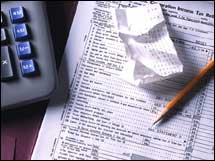What tax issues face nomadic workers?FSB's Anne Fisher helps a small business owner weigh the pros and cons of working from an RV.Dear FSB: Your story "5 Days, 400 Miles, 2 Kids, and an RV" caught my eye. My wife and I are thinking of selling our Florida home, buying an RV, and traveling the country. (We're both 30 with a son, 2, and a baby girl due shortly.) As a mortgage broker, I can work wirelessly from anywhere. Any ideas to help make this plan a success are welcome. -Brent Wilkerson, West Palm Beach Dear Brent: I wondered about the tax impact of having no fixed address, so I spoke to Alan Shannon-Breslin, a certified financial planner in Allentown, Pa. (alandbreslin.cpa@verizon.net). As you must know, Florida has no state income tax. So you'll probably want to maintain legal residency there.  Ask FSB
Get small-business intelligence from the experts. Here's a chance for YOU to ask your pressing small-business questions, and FSB editors will help you get answers from the appropriate experts.
"Vehicle registration is one factor the IRS uses to fix your legal residence," Shannon-Breslin says. "Even if you drive your RV across the country, registering it in Florida will make you a resident. Just remember to return when it's time to have the RV inspected." Keeping your Florida broker's license will help too. The RV is your primary residence, so you can deduct finance charges for it from your federal taxes, as you would mortgage interest. You can also take a home-office deduction. There seems to be no financial downside to your plan. But living and working, 24/7, in an RV with a spouse and two small children? Maybe it's just me, but the words "cabin fever" leap to mind. Readers, what say you? |
Sponsors
|
